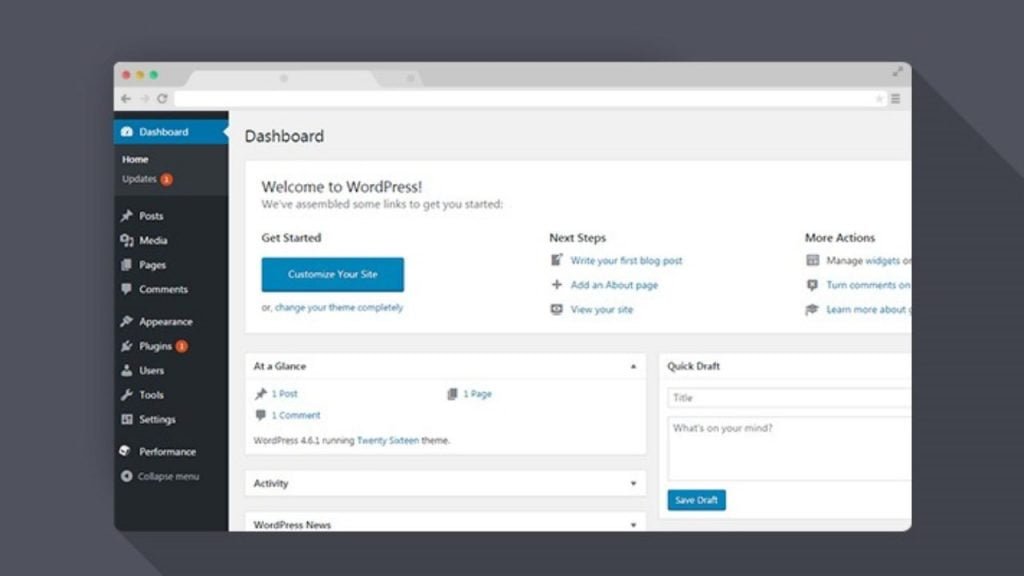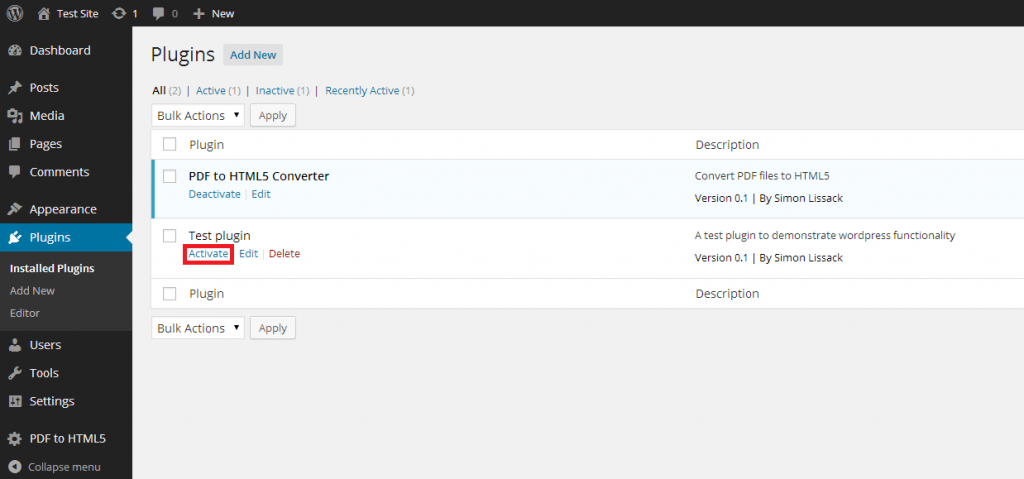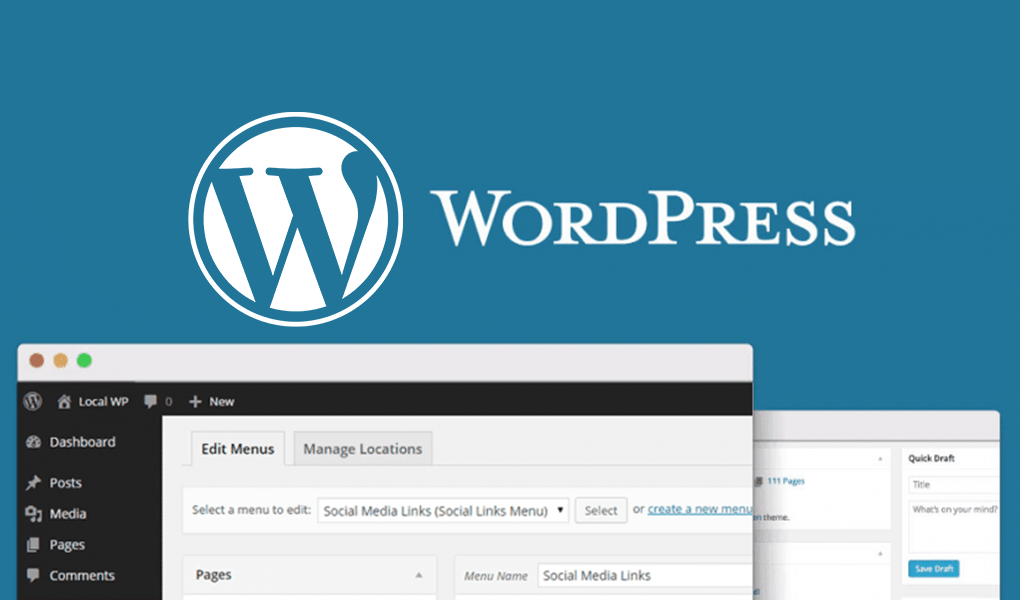In this article, we will be reviewing what are the Advantages and Disadvantages of WordPress Website to give an idea of how WordPress will be effective for your business.
As per studies done by W3Techs, out of the top 10 million websites on the web, WordPress holds more than 34% market share.
While comparing the last few years, WordPress’s market share has been increasing gradually, reaching 37.7% from 34.1%.
In the beginning, WordPress was introduced as a blogging platform. However, nowadays it has been identified as the largest and most popular content management system (CMS) in the market. Hence, WordPress is considered as the market leader for Content Management System.
When it comes to choosing the finest platform to develop your website with, WordPress comes to your mind always. WordPress is one of the open-source platforms available in the market.
WordPress also face high competition with the increasing popularity of website platforms such as WIX, Joomla and Drupal.
In this blog, we are going to highlight the Advantage and Disadvantage of WordPress Website so you shall make the right decision for your web development project. Let’s get started with the Advantages of WordPress.
Advantages of WordPress
1. Advantages of WordPress: User-Friendly CMS
As it is a CMS based website, using WordPress will allow the site’s admin to edit the pages, navigate through the backend of the web page, and update the new content.
Without any coding skills and website management skills, the website owners or bloggers itself can edit and maintain their website.

2. Advantages of WordPress: Plugins
Availability of Plugins is considered as one of the major advantages of WordPress. WordPress has more than 45,000 plugins available for almost all the functions. It does not matter whether you need to improve the SEO or run an analysis of your website, you can find the plugins for all.
This means you do not have to write many lines of codes to achieve the requirements. You just have to install the plugin and enjoy the functionality that comes with the plugin.


3. Advantages of WordPress: SEO-Friendly
WordPress has many plugins which are designed specifically for SEO purpose. Some people may have a very hard time adding the meta description and title. By adding available SEO WordPress Plugins, these can be achieved easily.
Not just that, when it arrives in optimization, WordPress is also an outstanding teacher. WordPress supports you to recognise the most used words in your web pages that can be used as keywords to make your page more search engine friendly.

4. Advantages of WordPress: Responsive Websites
With growing usage of mobile devices for browsing, developing a mobile-friendly website is critical to the UX as well as SEO. While considering responsive, most of WordPress’s themes are responsive hence mobile friendly. By using WordPress as your website’s backend CMS, you will be able to get the advantage of getting your website done for mobile as well.
5. Advantages of WordPress: Open-Source Community
One of the major advantages is that WordPress is an open-source platform. That means the WordPress developer can use, change, and study the code without developing it from scratch.
As open-source software, WordPress developers can share the source code online with other programmers too. This will save a lot of time and cost.
In addition, under the GPLv2 license, many plugins and themes of WordPress are free. Which means you shall easily modify and use the plugin on the website without spending any money or pay for any subscription fee.
All these while we checked the advantages of WordPress. Now let’s check the disadvantages of WordPress.
Disadvantages of WordPress
1. Disadvantages of WordPress: Customisation
WordPress is a flexible tool when it comes to editing. Not like the other drag and drop web builder tools.
However, if you are not an expert in WordPress or if you do not have any coding skills, it might be difficult for you to make a lot of customization on the themes. Sometimes while trying to customize certain functions it may break other functionalities. However, you shall get help from experienced WordPress Developers to sort this for you.
2. Disadvantages of WordPress: Vulnerability & Data Security
One of the main drawbacks of WordPress CMS is that it can be vulnerable in many circumstances. Since this CMS is an open-source programme, it unlocks the room to possible hackers.
To moderate this threat, choosing the correct themes and plugins for your WordPress website is vital. Also, it is always best to measure the attribute of a WordPress plugin beforehand.
According to the research done by Webarx Security, WordPress has been recognized as the one with the utmost number of vulnerabilities with 542 in 2018.
3. Disadvantages of WordPress: Frequent Updates
Developing a website using WordPress is not enough. To make sure that it functions appropriately, you will have to install several plugins and themes. The more WordPress plugins you use, the more you are going to confront compatibility encounters.
Moreover, renovating your site often could also delay its functionality like plugins might stop operating. Before upgrading your web, you have to make sure to get the backup of your data.

Advantages and Disadvantages of WordPress: Conclusion
In this blog, we examined WordPress advantages and disadvantages to give a high-level idea on its features. By reading the mentioned pros and cons of using WordPress, now you should be able to make the right decision. If you are looking forward to getting an interactive and user-friendly website, then all you need is skilled WordPress Developers.
Tectera, is considered as one of the leading web design company in Sri Lanka with many skilled WordPress developers. Contact Us, today to get a FREE quote on your next web development.
Good Luck!
General FAQ
What are the Advantages of WordPress?
1. Using WordPress CMS will allow the web admin to edit the pages, navigate over the backend of the web page, upload new content without any high technical skills.
2. WordPress has more than 45,000 plugins for all sort of functionality.
3. WordPress keeps SEO first. It is very easy to perform SEO on WordPress with its numerous SEO related plugin.
4. Most of the WordPress templates and designs are responsive. It gives importance to mobile.
5. It is open-source software, WordPress developers can share the source code online with other programmers too. This will save a lot of time and cost.
What are the Disadvantages of WordPress?
1. Since this CMS is an open-source programme, it unlocks the room to possible hackers.
2. WordPress and its plugins give several updates. Hence, all the plugin needs to be updated manually all the time





